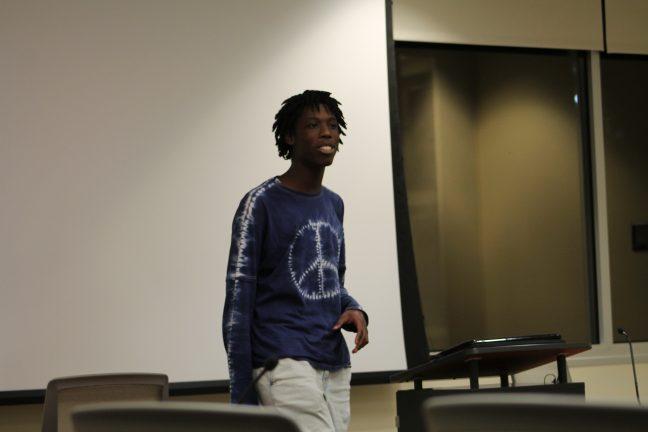Free tuition for black students seems only fair.
Black people, who face exclusion and exploitation, who live with the legacy of slavery and who deal with the effects of racism on a daily basis, deserve compensation. Education, which, like wealth, is distributed unequally in this country, could make a fine form of reparations.
What’s more, by helping to increase the amount of students of color to a proportionate level, free tuition would arguably help prepare all students to navigate the diverse social and professional environments that exist beyond college. Free tuition for black students is thus an idea with merit, at least in theory. But the Associated Students of Madison’s recent “Cognitive Dissonance” legislation, which proposes the University of Wisconsin offer free tuition to black students, illustrates the practical limits of educational reparations in Wisconsin.
For a student government so avowedly committed to creating a welcoming campus atmosphere for students of color, this legislation may be a counterproductive move. Black students already experience some measure of harassment because of stereotypes surrounding race, affirmative action and scholarship money. Imagine the hostility they as a group would face if every black student did not pay tuition, and nearly every white student did.
Pondering this kind of white resentment, it is tempting to dismiss it as mere prejudice. Indeed, racism is pervasive among UW’s white student body. But racial prejudice is not the whole picture. It is important to ask, when considering a radical proposal like “Cognitive Dissonance,” where the money will come from. UW is a public institution, meaning that the state’s taxpayers all help to fund it.
We in Madison are overly habituated to asking rural Wisconsin to pay for projects we think are important, but have little relevance for people outside the metropolitan areas. Just because people at the university believe that free tuition for all black students is worthwhile, doesn’t mean that those footing the bill feel similarly.
For working people around the state, whose kids need cheap college just like many in the black community do, feelings of resentment would perhaps be inevitable. Rep. Tyriek Mack, who authored the legislation, may believe he is sticking it to the university administration, which remains behind the curve on racial issues. Instead, what this proposal would do is divert limited resources from other poor and working class students so that every black student could get a free ride.
In this regard, this legislation falls into a classic trap. Race, by design, is divisive. Issues of race prevent us from recognizing and reacting to the economic injustice that affects people of every color. By distributing resources from one lower-class group to another along strict color lines, Mack’s proposal would contribute to the confusion.
Thus, “Cognitive Dissonance” is radical in the wrong way. Yes, a good argument could be made that black people deserve a free education. But making college tuition-free for black people at the expense of poor and working class whites is not progressive. Moreover, this kind of publicly funded experiment in reparations lacks buy-in from the rest of the state and thus is likely doomed to failure.
It is inspiring to see Mack and the rest of ASM push hard for the rights and concerns of minority students on campus. But the practical limitations of their latest proposal show they haven’t found their silver bullet yet.
Wilder Deitz ([email protected]) is a senior majoring in social welfare and French.














